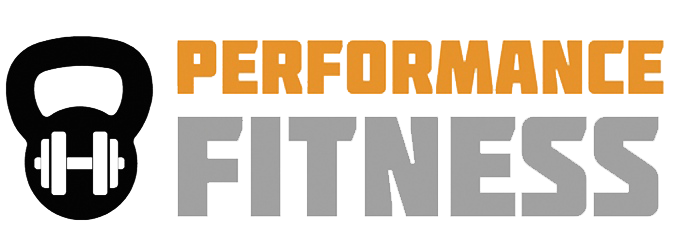Sacrifice and Sustainability: The Double-Edged Sword of Goal Achievement
 You have fitness goals, both short- and long-term. Your short-term goals might include being able to perform 10 perfect military pushups or doing a minute of jump squats without stopping to catch your breath or nearly puking. Your long-term goal might be to make other women want to scratch your eyes out when they see you in a bikini. Why the hell not?
You have fitness goals, both short- and long-term. Your short-term goals might include being able to perform 10 perfect military pushups or doing a minute of jump squats without stopping to catch your breath or nearly puking. Your long-term goal might be to make other women want to scratch your eyes out when they see you in a bikini. Why the hell not?
These are concrete, attainable goals that require some sacrifice and a lot of sustainability, two opposing elements on the goal achievement bullet list.
For instance, you know you have to sacrifice calories if you want to lose weight. But it has to be an amount you can live with long-term (i.e., sustainability) or else you’ll find yourself with your face stuck in a pint of Chubby Hubby feeling like a failure. But it’s not you who failed. It’s your unsustainable plan that doesn’t match with the amount of sacrifice you’re willing to bear. It might also be a poorly designed plan.
We walk a fine line when it comes to our fitness goals. It’s a line that no one else can really dictate. Do you have what it takes to be your number one fitness advocate? Do you have what it takes to succeed?
The major sacrifices we make include the biggies—calories, time, comfort, and sometimes money. For those of us needing to separate ourselves from undermining “friends,” we may need to sacrifice unhealthy relationships.
What are you willing to give up to reach your goals? What are your deal-breakers? Knowing the answers to these questions can not only help you find the true path to your dream fitness level, but can also provide you with a sobering answer to the question, “Exactly how important are my goals anyway?”
Remembering the two “S’s” can help when it comes to your exercise program and your dietary habits. If you’re feeling like writing a list, follow that impulse and do it. Go Oprah on yourself. Interview yourself. Investigate your desires, priorities, hopes and dreams. Here’s a sample:
“Chloe Client”
Fitness goals:
Short-term – be able to perform 10 consecutive chin-ups and 10 one-armed pushups, by the end of 3 months
Long-term – Lose xx pounds, lower body fat to xx% in 8 months
To reach my goals I need to:
- Spend time each day training for my short-term fitness goals. Practice pushups and chin ups, doing at least 10 reps a day.
- Spend 4-5 hours a week training to gain muscle mass and lose fat, e.g., strength-training and High Intensity Interval training.
- Cut calories intelligently—enough to burn fat but not so much that my body thinks it’s starving and starts storing extra calories, i.e., learn my resting metabolic rate, activity level and daily caloric needs.
- Eat enough protein to build muscle, find out my lean body mass and eat as many protein grams as I have pounds of lean body mass.
- Get enough sleep to keep hormones balanced and mood regulated
- Drink plenty of water to stay hydrated, flush toxins and aid in caloric restriction
- Rest adequately to ensure maximum muscle growth
- Warm up and stretch adequately to avoid injury
Does all of this sound realistic to Chloe? She says yes. She knows that some mornings she’ll have to wake up early to get her workout in, and that most nights she won’t be eating dessert along with the rest of her family. She also knows that her mother will worry that she’ll stop menstruating or start to look like a man, and that one of her friends will make snarky, disparaging comments. Can she limit these relationships? Probably not the relationship with her mother, but she can set boundaries with the naysayers and “saboteurs” in her life.
Chloe thinks about it and decides that these are sacrifices she’s willing to make, because she feels that her goals are a priority. She’s also willing to leave the dessert table and spend a few minutes by herself, if the temptation for cookies or pudding becomes overwhelming.
Does this plan feel sustainable over the long-term for Chloe? She says it does. Chloe firmly believes that she is ready to make fitness a lifestyle. After years of trying different heavily restricted diets, Chloe has enough experience to know that her plan must be sustainable over the long haul. She’s already eating whole, unprocessed foods, so cutting calories by a few hundred per day feels reasonable, and she knows that once a week it’s okay if she has a slice of pizza or a serving of ice cream – as long as she doesn’t hoover a whole pizza or a tub of Haagen Dazs. She’s not cutting out any food groups or macronutrients (fat or carbs for example), which makes Chloe feel reassured that this is definitely do-able.
What would be her deal breakers? Chloe says, constant hunger. Constant feelings of deprivation. Not being able to socialize over food. Not being able to spend adequate time with family and friends. Having to shell out big bucks for supplements or equipment. Having to go to a gym instead of working out in her home with her trainer. It sounds like Chloe has clear (and healthy) priorities and that her plan CAN work for her.
Now it’s your turn.
What’s your plan? What are your goals? What are your deal breakers? Write them down. Post them below to comments. Then write down what you need to do to reach your goals, with the help of your personal trainer, if necessary. Then assess the level of sacrifice and sustainability. Be honest. If you must have dessert every night, start researching lower-calorie, healthy, real food (ideally) alternatives. Baked apples perhaps. A protein smoothie. One piece of dark chocolate. There are options for you, no matter what your needs or goals are.
The only true obstacle to reaching your fitness goals is YOU.
